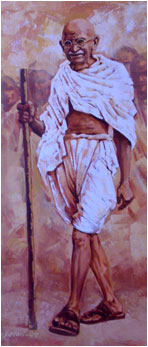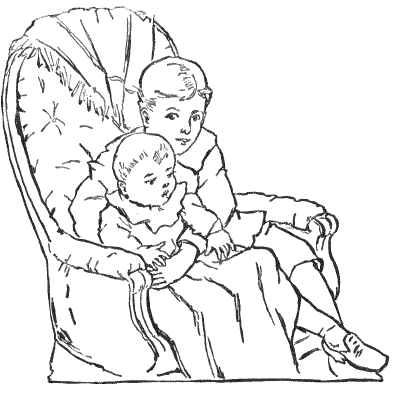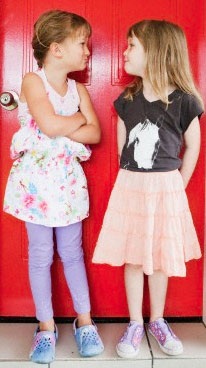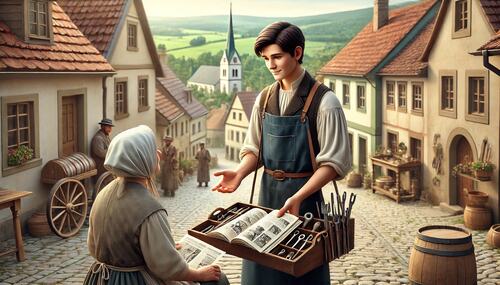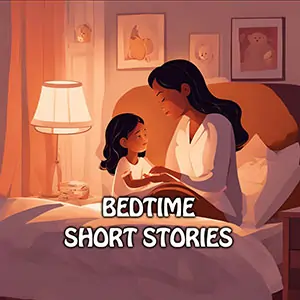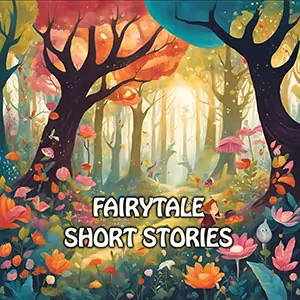Short Stories » Hop-O'-My-Thumb
Hop-O'-My-Thumb - Page 1 of 3

THERE was once upon a time a wood-cutter and his wife who had seven children, all boys ; the eldest was ten years old and the youngest only seven. It was rather strange that the wood- cutter had had so many children in so short a period ; but the truth is that his wife always had at least two at a birth. They were very poor, and their seven children were a heavy burthen to them, for not one of them was yet old enough to earn his bread. What made the matter worse was the circumstance that the youngest child was a weakly little fellow, never saying a word, which they took to arise from stupidity, while in fact it was a sign of his wit. He was very little, indeed, when he was born he was no larger than a man's thumb ; which induced his father and mother to christen him " Hop-o'-my-Thumb." The poor child was the drudge of the whole house, and was always blamed for whatever was wrong. Notwithstanding all this, he was more clever and more knowing than any of his brothers, and though he spoke but little, he heard and remembered all. About this time there fell out a very scarce year, and the famine was so grievous that the poor people resolved to get rid of their children altogether. One evening after they had gone to bed, and the parents were sitting near the fire, the wood cutter said to his wife, his heart being torn with anguish, " You see that we can no longer keep our children : I cannot see them die of hun- ger before my face, and am resolved to lose them tomorrow in the forest, which will not be very difficult to do ; for, while they are amusing themselves with tying up the faggots, we have only to slip away from them unperceived." " Ah ! husband," cried the poor woman, "could you be so hard-hearted as to lose your own children ? " In vain her husband for a long time represented to her their great distress ; she would not consent : she was poor, but she was their mother. However, at last, having considered how dreadful it would be to see them die of hunger before her eyes, she agreed to her husband's proposal and went weeping to bed. Hop-o'-my-Thumb had overheard all their conversation ; for, having when in bed heard his father talking very seriously, he had quietly risen, and slipped under the stool on which his father and mother were sitting, and listened to them without being seen. When his father and mother had left off talking, he went back to his bed again ; but slept no more that night, thinking of what he should do in the morning. He got up very early, and went to the side of a brook, where he filled his pockets with little white pebbles ; he then returned to the house. They set out, and Hop-o'-my-Thumb did not mention a word of what he had learned to his brothers. They went into a very thick forest, where the trees grew so closely together that they could not see each other when they were ten steps apart. The wood- cutter went to his work, cutting down trees, while his children began to pick up sticks to make faggots. When the father and mother saw them busily employed, they suddenly gave them the slip, and returned home by a bye path. As soon as the poor children found themselves alone, they began to cry, calling out for their parents as loudly as they could. Hop-o'-my-Thumb let them cry on, knowing very well, the way to take them home again ; for as he had come to the wood, he had taken good care to drop all along the road, the white pebbles with which he had Ulled his pockets. After a while, however, he said to them : " Do not be afraid my lads, our father and mother have left us here, but I will conduct you safely home again ; only follow me. He then led the way and took them back to their cottage, by the same road they had come to the forest. They were at first afraid to go in, and stationed themselves against the door to listen to what their father and mother were saying.
Just as the wood- cutter and his wife had arrived at their home, the lord of the village had sent them ten dollars which he had owed them a long time, and which they had given up all hopes of ever being paid. This money came just in time to save their lives, for the poor folks were nearly dying with hunger. The wood-cutter immediately dispatched his wife to the butcher's. As it was a long time since they had eaten any- thing, she bought three times as much meat as was necessary for two people's supper. When they had satisfied their hunger, the mother began to sigh, and said to her husband : " Alas ! where are our poor children now ? what a good supper would they have made of what is remaining of ours. O ! William, it is all your fault that they are lost ; I said, over and over again, that we should certainly repent leaving them to starve in the forest. Oh ! Heavens, where are they now ; the wolves, perhaps, have already devoured them ; how cruel you were to abandon your children." The wood-cutter soon began to grow impatient, for she kept continually repeating, that they would deeply repent this cruelty, and that she had all along said how it would be. He threatened therefore to beat her if she did not hold her tongue. Not that the wood-cutter was not quite as much, and perhaps even more grieved than his wife ; but she exhausted his patience ; in fact he was like most other men who like their wives to talk wisely, but find them very importunate when their advice has been neglected. The poor woman shed abundance of tears, repeating : " Alas ! where are my children now, my poor children." At last, she spoke so loud, that her children, who were at the door, heard her, and cried out all together : " Here we are ! here we are ! " She quickly ran to open the door for them, crying as she embraced them : "How glad I am to see you again, my dear, dear children ! how tired you must be. Why poor little Peter, you are all over dirt ; come and let me wash your face." Peter was her eldest child, and she loved him better than all his brothers because he was like her, in having red hair. They all sat down to table, and ate away with so good an appetite, that it quite rejoiced their father and mother to see them ; meanwhile they recounted the fear they had been in, when they found themselves alone in the forest ; almost always speaking at once.
Hop O My Thumb - Takeaway for Class 1,2,3
No matter how small you may be, clever thinking and bravery can help you overcome big challenges.
Hop O My Thumb - Takeaway for Class 4,5,6
Even the smallest person can outsmart danger with clever thinking and bravery, just like Hop O' My Thumb did to save his family.
Hop O My Thumb - Takeaway for Class 7,8,9
Even if you feel small or overlooked, like Hop-o'-My-Thumb, cleverness and quick thinking can help you overcome challenges and save the day.
3 Fun Facts
- Hop-O'-My-Thumb was the cleverest of his brothers, even though he was the smallest.
- To find his way back home, Hop-O'-My-Thumb used white pebbles and breadcrumbs as trails.
- The story involves a giant or ogre who wore magical boots that allowed him to take giant steps.
Quiz for Class 1,2,3
- What did Hop-o'-My-Thumb use to find his way back home after being left in the forest?
- How many brothers did Hop-o'-My-Thumb have?
- What did the giant want to do when he found Hop-o'-My-Thumb and his brothers hiding in his house?
Quiz for Class 4,5,6
- What clever trick did Hop-o'-My-Thumb use to find his way back home after being lost in the forest?
- How did Hop-o'-My-Thumb and his brothers end up in the forest in the first place?
- What unusual item did Hop-o'-My-Thumb use to mark a path in the story?
Quiz for Class 7,8,9
- What plan did Hop-o’-My-Thumb devise to help his family find their way back home after being abandoned in the forest?
- How did Hop-o’-My-Thumb manage to save his brothers from the ogre's clutches after the villain intended to harm them?
- What clever trick did Hop-o’-My-Thumb use to steal the ogre’s treasure and ensure his family's welfare?
Was this article useful? What should we do to improve your experience? Share your valued feedback and suggestions!
Help us to serve you better. Donate Now!



